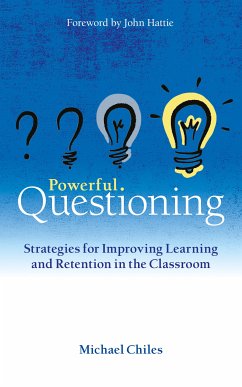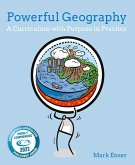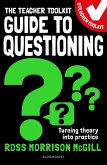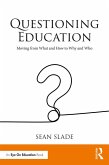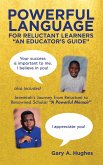Foreword by John Hattie. Questioning is a staple feature of a teacher's toolkit across all phases of education. Classrooms are awash with explanation, modelling and feedback, but of all the pedagogical strategies at a teacher's disposal, questioning is one of the most important. It is the heartbeat of a classroom. While the art of asking a question seems relatively straightforward, to what extent do teachers consider the types of questions they're using? Are the questions they ask students actually helping to support learning? InPowerful Questioning,Michael Chiles delves into the complexity of asking questions and how best to use this pedagogical tool as a powerful springboard to support learning in the classroom. Teachers are described by many as 'professional question-askers' and the use of questioning in the teaching and learning process dates back to one of the most influential users and developers of questions, the Greek philosopher Socrates. Socrates believed that by asking questions we encourage reflection, and that their use is most effective when we create a continual loop of dialogue between the asker and the receiver, to allow movement from surface to deeper level thinking.Powerful Questioningtakes inspiration from this, providing original theory that relates back to the historical use of questioning in the classroom throughout. Offering a fresh perspective on how questioning can be engineered to support effective learning,Powerful Questioningexamines the reasons behind the questions we ask and reveals the power of asking the right questions, in the right way, at the right time. It details a set of core principles, recommendations and classroom-based practical examples that can be used to implement powerful questioning both in the classroom and wider school. Michael's aim is to help teachers become research-informed on the theories around the use of questioning in the classroom, whilst also providing a wide range of practical classroom-based strategies. Readers will take away specific examples from a broad range of case studies in which teachers at different phases of education (from Key Stages one to five) share how they use questioning to improve learning and retention. Essential reading for all teachers and school leaders.
Dieser Download kann aus rechtlichen Gründen nur mit Rechnungsadresse in A, B, BG, CY, CZ, D, DK, EW, E, FIN, F, GR, H, IRL, I, LT, L, LR, M, NL, PL, P, R, S, SLO, SK ausgeliefert werden.

